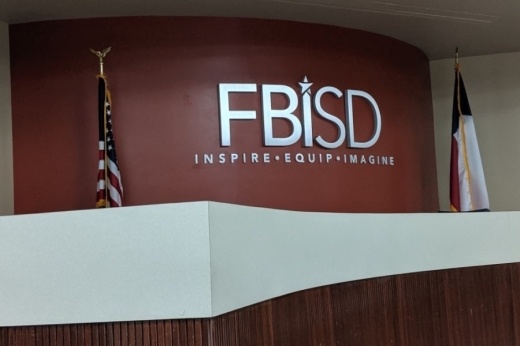The lone dissenter, trustee Adam Schoof, shared concerns that homeowners are being taxed on inflated property values and the tax increase undermines the homestead exemption expected to pass in November.
However, board President Kristin Tassin said it’s actually the Texas Legislature—not the school board—that expects property values to rise about 7% each year when planning the state budget. Because of this assumption, the state reduces its share of school funding, expecting local property taxes to make up the difference under current school finance laws.
“I don’t like sitting up here taking the brunt of a system that’s frankly broken,” she said at the Sept. 15 public tax hearing. “We are doing the best we can to educate 80,000 students on the leanest budget that we possibly can, and with one of the lowest tax rates in the area.”
What it means
Out of the $41.3 million from the increase for the 2025-26 school year, Chief Financial Officer Brian Guinn said about $30.7 million will go toward salaries and benefits, $5 million will help maintain the district's 90-day operating reserve—an emergency fund required by board policy—and $5.54 million of that revenue will go back to the state as recapture.
He said the proposed tax rate totals $1.0569 per $100 of assessed value, including:
- $0.7869 for maintenance and operations, or M&O rate, which funds salaries and district operations
- $0.27 for interest and sinking, or I&S, which funds debt obligations from previous bonds
The impact
Despite the tax rate increase, the average homeowner’s tax bill is projected to decrease by $34 due to an anticipated higher homestead exemption, Guinn said. Under the proposed rate and adjusted average home taxable value of $280,641, the average tax bill will be $2,966, down from $3,000 last year.

What they’re saying
Guinn said FBISD’s total certified property value is now $58.5 billion, a billion-dollar increase from the previous year. However, Schoof questioned why appraised values are increasing in a slower real estate market and noted that his home, purchased in 2022, would not sell for significantly more today.
Guinn said appraisals are controlled by the Fort Bend Central Appraisal District and noted that even if property values go up, the state reduces its share of funding, so the district doesn’t receive more money.
“Getting frustrated with us is misguided, because the Texas Legislature is the one that needs to step in and control the Central Appraisal District if they don't want appraisals to continue rising,” Tassin said.
With one of the lowest tax rates in the region, Tassin said this one-year tax increase is necessary to maintain fiscal stability while covering staff raises and benefits not included in state mandates.
Meanwhile, a compensation study conducted in the 2024-25 school year found that FBISD had one of the lowest starting salaries for teachers compared to peer districts.
Looking ahead
Guinn said the increase is a temporary measure, and the tax rate is expected to drop by 7 cents for the 2026-27 school year, reverting to $0.9869 per $100 valuation.
Despite mention of a potential future tax increase in June, Tassin said there are no current plans to seek a voter-approval tax rate election, or VATRE, in 2026, which would require public approval for further increases.





